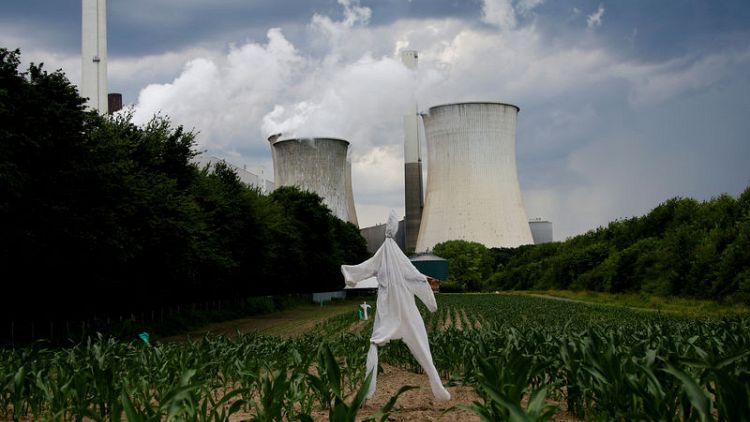FRANKFURT (Reuters) - German climate protection plans involving the closure of some coal plants might cost 1.2 billion euros (1 billion pounds) by 2030 without achieving the desired reductions in carbon emissions, an independent study said on Monday.
A draft law detailing the plan to shut hard coal fired power plants by offering operators fiscal incentives in auctions, seen by Reuters on Sept. 5, showed Germany will start shutting coal plants from next year, under a long-term exit plan up to 2038.
The government aims to meet a target of reducing carbon emissions to 55% of their 1990 level by 2030.
"Because of planned price caps, more plants might have to be forced to close on top (of those awarded money in the closure auctions), which brings the risk of compensation lawsuits and delays," said the study from Aurora Energy Research.
The draft law envisages that by 2022, around 12 plants run by operators including RWE <RWEG.DE>, EnBW <EBKG.DE> and smaller competitors would be shut, leaving 30 with 15 gigawatts (GW) capacity.
Aurora said that an assumed maximum price of 150,000 euros compensation per megawatt - with taxpayers' costs in mind - may achieve the first round of closures, with the desired outcome of idling old plants in north Germany not crucial for meeting demand in the industrial south.
But later on, the lawmakers might offer decreases down to 100,000 euros/MW up to 2030, Aurora said, stressing this was an assumption as the draft had not specified the levels yet.
Fewer operators might accept these pay-offs, causing undersubscribed auctions and necessitating ordered shutdowns that could cause more emissions and messy lawsuits that the exit plan was meant to avoid, Aurora said.
The country's energy regulator will have to decide on mandated closures on the basis of the plants' age.
After 2030, there will be no more compensation for plants over the age of 25 years.
Other factors that operators will bear in mind to prepare themselves for the auctions were raw material and wholesale prices as well as power demand in coming years, Aurora said.
(Reporting by Vera Eckert, Editing by Franklin Paul)



